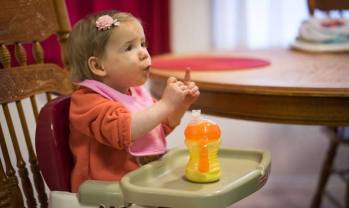Non-verbal Communication in Kids with Cerebral Palsy
For the average person, the ability to easily communicate with others is often taken for granted. However, for some children with cerebral palsy, verbal communication can sometimes be extremely challenging. Fortunately there are several nonverbal methods of communication which can help these children better interact with others and improve their social skills.
When children are unable to express themselves verbally, it can be quite challenging for not only the individual, but also for parents, teachers, and caregivers. This inability to effectively communicate means they cannot express important things (such as being in pain and feeling ill) to those responsible for their care. Communication is very important with young children, and as such, parents of nonverbal children are encouraged to look into augmentative and alternate methods of communication.
Augmentative and Alternative Communication
Having the ability to communicate is a real achievement for children with moderate to severe forms of cerebral palsy. Many parents believe speech is a necessary means of communication, but this is not always the best way for children and young people with cerebral palsy to communicate.
While many young people who suffer from Cerebral Palsy have little to no trouble with verbal communication, others may have specific difficulties which can be addressed and mitigated through speech therapy. For those who have severe difficulties verbalizing, you may find that augmentative and alternative communication (AAC) methods work best for your child. These non-verbal types of communication include methods such as:
- Sign language
- Use of gestures
- Manual language boards
- Use of touch screens and speech-generation systems
- Utilization of electronic keyboards and other electronic devices (including smartphones and tablet computers)
The Development of Augmentative & Alternative Communication
The concept of augmentative and alternative communication has been in use for centuries as a means for assisting people who were unable to communicate verbally. The goal of AAC is to develop ways that are within an individual’s skill-set that allow him or her to communicate with friends and family members in order to form bonds and function within society. Written communication, while very effective, does not technically fall into this category.
Communication can be either aided or unaided. Aided communication refers to the use of software, equipment, or assistive devices, while unaided communication can be facilitated through sign language, physical cues, and gesturing. Your child’s individual needs and abilities will determine the best course of action moving forward.
Nonverbal Communication Techniques Do No Hamper Speech
Some parents fear that if they take advantage of nonverbal communication techniques, it will discourage their child from improving their verbal skills. According to data collected in several studies, the use of AAC actually enhances the ability of a child to verbalize. In fact, none of the children from the study showed a decrease in speech production as a result of AAC intervention, while the vast majority (89%) demonstrated at least modest gains in speech!


My 40 year old cousin with CP and no speech has used facilitated communication (movement stabilized and assisted pointing to alphabet board) for many years, has written a book of short stories and poetry and has generally benefitted emotionally, socially and psychologically from FC. His latest NDIS assessor has recommended that all funding for FC be cut and alternative communication methods that his medical team have in the past for valid physiological reasons deemed unsuitable for him be funded.
My aunty (his mother) is quite depressed about it all.
Is there research that shows the benefits of FC for use with people with CP (as opposed to people with ASD). I realise there is much research showing no benefit of FC to people with ASD but CP is quite different.
Any information would be greatly appreciated.
Kind Regards
Concerned cousin – Claire
(